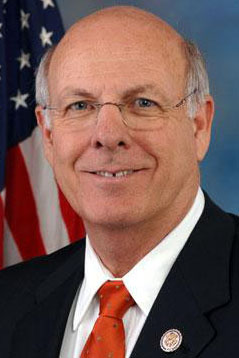
EDITOR’S NOTE: Steve Pearce represents New Mexico’s 2nd Congressional District and J. Randy Forbes represents Virginia’s 4th Congressional District. Pearce is a member of Taylor Memorial Baptist Church in Hobbs, N.M.; Forbes is a member of Great Bridge Baptist Church in Chesapeake, Va.
WASHINGTON (BP) — America was founded by individuals seeking the freedom to live their lives in step with their beliefs. It is this quest that led our Founding Fathers to cast religious freedom into the First Amendment of the Constitution. For them, religious freedom was the prize of citizenship. The PRICE they paid for citizenship was their lives, their fortunes and their sacred honor.
This freedom now faces a challenge that will determine its ultimate survival. Legal battles are ongoing across the country that will determine whether an individual’s deeply held beliefs can be legally severed from the way they engage the community around them.
The prize of citizenship — religious freedom — has been misconstrued as the price of citizenship.
Elaine Huguenin, a New Mexico photographer, politely declined to photograph a same-sex commitment ceremony because her religious beliefs prevented her from affirming the ceremony through her artistic talents. The couple was easily able to secure another photographer. On the face of it, the interests of both parties had been satisfied. Elaine was able to honor her conscience and the couple had pictures to memorialize their ceremony.
But mutual satisfaction was insufficient. The couple filed a complaint with the New Mexico Human Rights Commission, claiming that Elaine discriminated against them on the basis of sexual orientation. Elaine and her husband Jon were fined almost $7,000 in fees, and a struggle between non-discrimination laws and religious freedom began to work its way through the appellate courts.
On August 21, 2013, the New Mexico Supreme Court issued a ruling subordinating religious freedom to state law. The effect on religious freedom was not unnoticed — it was purposefully ignored. The concurring opinion acknowledged in language that ought to be chilling to Americans of any faith that the Huguenins are now “compelled by law to compromise the very religious beliefs that inspire their lives. … [I]t is the price of citizenship.” The case will now make its way to the U.S. Supreme Court.
A recent Rasmussen poll revealed that 85 percent of Americans believe that a photographer with deeply held religious beliefs regarding marriage should be free to decline a request to photograph a same-sex ceremony. This poll reflects the reality that we are free under the First Amendment to live according to the dictates of our individual consciences — a freedom which the Founding Fathers prized above almost any other.
However, despite this overwhelming popular support, the U.S. Supreme Court’s decision to embrace same-sex marriage in last June’s United States v. Windsor has given validation to the basely false argument that the only reason anyone has to support traditional marriage is bigotry. We have forgotten President Obama’s observation in 2012 that there are people of good will on both sides of the marriage debate.
A hallmark of the American spirit of freedom is that we have historically honored the conscientious objector. Those whose faith prohibits the use of force under any circumstance are not required to serve in the military, regardless of the honorability of service or our society’s legitimate need to be defended. Employees who have a religious objection to working on sacred observances and holidays must be accommodated by their employers absent an undue hardship.
So, too, must those with conscientious objections to providing certain services be free to follow their beliefs, rather than be coerced into action. This is especially crucial when the inaction of a single individual in no way precludes the customer from obtaining a desired commercial service from another company.
Some scoff at the claim that religious freedom is being trampled in the name of tolerance. But there have been many times in history when truth was suppressed by scorn until it was too late to turn the tide. Freedom is a fragile gift that cannot be taken for granted without great cost. Or, as President Reagan so pointedly reminded us:
“[F]reedom is never more than one generation away from extinction. We didn’t pass it on to our children in the bloodstream. The only way they can inherit the freedom we have known is if we fight for it, protect it, defend it and then hand it to them with the well taught lessons of how they in their lifetime must do the same. And if you and I don’t do this, then you and I may well spend our sunset years telling our children and our children’s children what it once was like in America when men were free.”
The future of religious freedom is in the hands of the people, as it was in the hands of the Founders over 200 years ago. We must protect the prize of citizenship.
–30–
For an earlier Baptist Press column by Congressman Randy Forbes, click here. Get Baptist Press headlines and breaking news on Twitter (@BaptistPress), Facebook (Facebook.com/BaptistPress) and in your email (baptistpress.com/SubscribeBP.asp).















